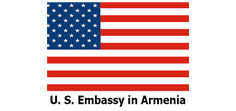On April 18, former RA Foreign Minister Vartan Oskanian published another article on the current stage of the Artsakh conflict.
Describing an episode from a well-known meeting of the National Security Council convened by the first president Levon Ter-Petrosyan on January 8, 1998, Oskanian referred to the proposals of the OSCE Minsk Group of the “common state,” Key West and Madrid, all three of which, according to the former foreign minister, implied the status of Artsakh outside Azerbaijan.
“Ter-Petrosyan put me in a rather difficult situation, extending his hand in my direction, he said, “Let Vartan say, is it possible to ever receive a document referring to the status of Karabakh without establishing the territorial integrity of Azerbaijan?” And I said what I believed, “Mr. President, I think it is possible.” […] In the following years, the Minsk Group put three proposals on the table (the proposals of a common state, Key West and Madrid), which referred to the status of Karabakh, and in three cases, outside Azerbaijan,” Oskanian wrote in his article.
Fact Investigation Platform examined Oskanian’s given allegation and several others in the article.
For Oskanian, the option of a “common state” was not acceptable back in time
The Minsk Group Co-Chairs presented a “common state” proposal to Armenia and Azerbaijan in November 1998. According to the document, the parties sign an agreement by which Nagorno-Karabakh receives the status of a state-territorial formation in the form of a republic “within the internationally recognized borders of Azerbaijan.
The document stipulated that Nagorno-Karabakh participates in the implementation of Azerbaijan’s foreign policy only on issues that “affect its interests,” and most importantly, decisions on these issues cannot be made “without the consent of both parties.”
Residents of Artsakh, according to the proposal of the common state, would have an Azerbaijani passport with a special note “Nagorno Karabakh” as an identity card. The people of Nagorno-Karabakh would also have the right to elect their representatives in the Azerbaijani parliament and participate in the presidential elections in Azerbaijan.
Oskanian himself, in an article titled “Birth of the Idea of a ‘Common State’” published by Mediamax in 2012, admits that “several provisions of the document made Karabakh seriously dependent on Azerbaijan.”
“Of course, the document on the ‘common state’ was not acceptable to the Armenian side either: although it tried to establish purely horizontal ties between Azerbaijan and Nagorno Karabakh, some provisions of it made Karabakh seriously dependent on Azerbaijan,” Oskanian wrote.
Thus, Oskanian’s assertion that the option of “common state” implied Artsakh’s self-determination outside Azerbaijan is not true.
Nane Manasyan

 FACTOMETER
FACTOMETER







